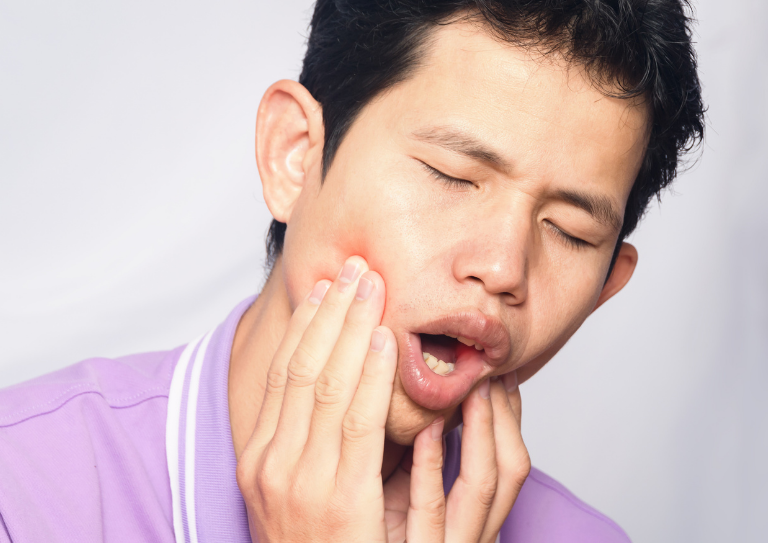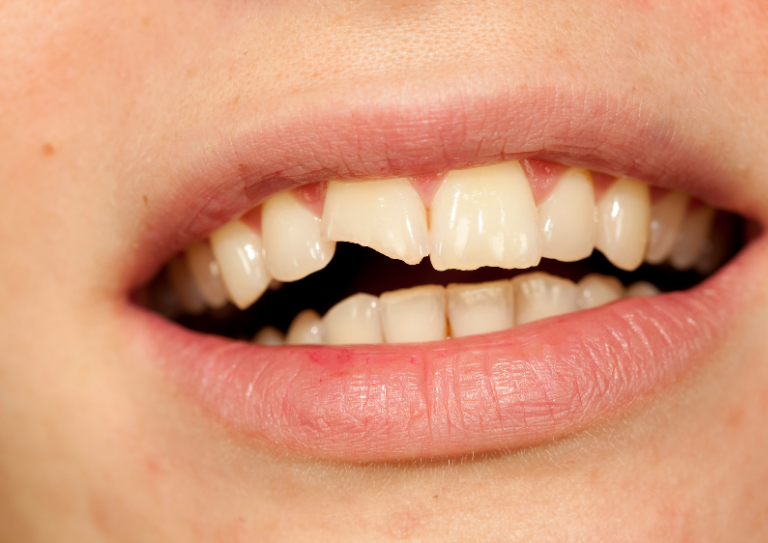What to do in a dental emergency?
The most important thing you should do is to try and remain calm. The next thing to do is assess whether the accident (e.g. tooth gets knocked out) involved hitting the head or causing the person to be unconscious; call a physician if necessary, then attend to the teeth.
If there is any bleeding, clean the oral cavity with clean gauze, then check around the person for broken/missing teeth. If any teeth are missing, do look for them in case they can be reinserted into the tooth socket.
What if I have knocked a tooth out?
If your permanent tooth is accidentally knocked out due to trauma or sport injury, do not panic. Prompt and effective management of the avulsed tooth within the first 20 to 40 minutes can save the tooth. Here are some simple measures that you can do:
- If the tooth is dirty or contaminated, gently rinse the tooth under running tap water. Do not scrub or brush the root surface as it may have living periodontal fibre and cells. Hold the tooth crown while rinsing.
- After cleaning the tooth and your mouth, try to re-plant (insert) the tooth into its socket again.
- If it is not possible to re-plant the tooth back into its socket on the spot, place the tooth in milk or saline water. Alternatively, you can bathe the tooth with your own saliva by placing it on the inner side of your cheek.
- See a dentist immediately for emergency treatment.
- In all cases, see your dentist as quickly as possible. Knocked out teeth with the highest chances of being saved are those seen by the dentist and returned to their socket within 1 hour of being knocked out.
My tooth hurts, what should I do?
Prescribed or over-the-counter pain medication may temporarily relieve the pain. In case the toothache is originating from the gums, rinse your mouth with warm salt water and use dental floss to ensure that there is no food or other debris caught between the teeth or in the gum pocket around the tooth.
Never put aspirin or any other painkiller against the gums near the aching tooth because it may burn the gum tissue.

If there is swelling, pus or a pimple-like protrusion near the root of your tooth (on the side of your gums), an abscess has formed. Abscesses are infections that occur around the root of a tooth or in the space between the teeth and gums.
Abscesses are a serious condition that can damage tissue and surrounding teeth, with the infection possibly spreading to other parts of the body if left untreated. Please schedule an appointment to see one of our doctors immediately.
What should I do if I have a swelling in my gums?
If there is swelling, pus or a pimple-like protrusion near the root of your tooth (on the side of your gums), an abscess has formed. Abscesses are infections that occur around the root of a tooth or in the space between the teeth and gums. Abscesses are a serious condition that can damage tissue and surrounding teeth, with the infection possibly spreading to other parts of the body if left untreated.
Because of the serious oral and general health problems that can result from an abscess, contact us immediately to receive treatment or antibiotics. In the meantime, to ease the pain and draw the pus toward the surface, try rinsing your mouth with mild salt water several times a day.
I feel sharp, sudden pains inside my tooth at night, what should I do?
If you are getting spontaneous, sharp throbbing pain during the night, it could be due to nerve damage. Please arrange to see our doctors as soon as you can; in the meantime, try sleeping in a sitting position.
The nerve and pulp chamber doesn’t get filled with blood and fluid as much when upright, and usually you feel less of the throbbing pain.
What to do in a dental emergency: What if I have fractured (cracked) my tooth?
Fractured teeth can usually be restored so there is no need to panic. If the tooth is painful, avoid hot or cold and avoid eating or biting on that side i.e. relieve the tooth from extremes of temperature and pressure.
Pain-free treatment is usually available by contacting us quickly.

What should I do if my tooth broke/chipped?
Save any pieces. Rinse the mouth using warm water; rinse any broken pieces. If there’s bleeding, apply a piece of gauze to the area for about 10 minutes or until the bleeding stops.
Apply a cold compress to the outside of the mouth, cheek, or lip near the broken/chipped tooth to keep any swelling down and relieve pain. See our doctors as soon as possible.
What to do in a dental emergency:What if I have lost a crown?
Keep your crown safe so it can be re-cemented as soon as possible to avoid damage or the need for root canal treatment. Contact us immediately.
If the crown falls off, make an appointment to see your dentist as soon as possible and bring the crown with you. If possible, slip the crown back over the tooth. Before doing so, coat the inner surface with toothpaste or preferably denture adhesive, to help hold the crown in place.
Do not use super glue!
What if I have broken my denture?
Broken dentures can usually be repaired relatively easily. Please resist the temptation to glue them together yourself as this often makes a repair very difficult.
Do not use super glue. Contact us to schedule the repair.
I bit my tongue/was hit in my cheek, now there’s bleeding, what should I do?
Injuries to the soft tissues, which include the tongue, cheeks, gums, and lips, can result in bleeding. To control the bleeding, here’s what to do:
- Rinse your mouth with a mild salt-water solution.
- Use a moistened piece of gauze or tea bag to apply pressure to the bleeding site. Hold in place for 15 to 20 minutes.
- To both control bleeding and relieve pain, hold a cold compress to the outside of the mouth or cheek in the affected area for 5 to 10 minutes.
- If the bleeding doesn’t stop, see your dentist right away or go to a hospital emergency room. Continue to apply pressure on the bleeding site with the gauze until you can be seen and treated.
We hope these tips on what to do in a dental emergency were useful. Don’t hesitate to consult our dentists to resolve any of your dental concerns. Please call 62820122 or WhatsApp us at (+65) 8057 7381.
Also READ: How To Take Care Of Children’s Teeth: Frequently Asked Questions




